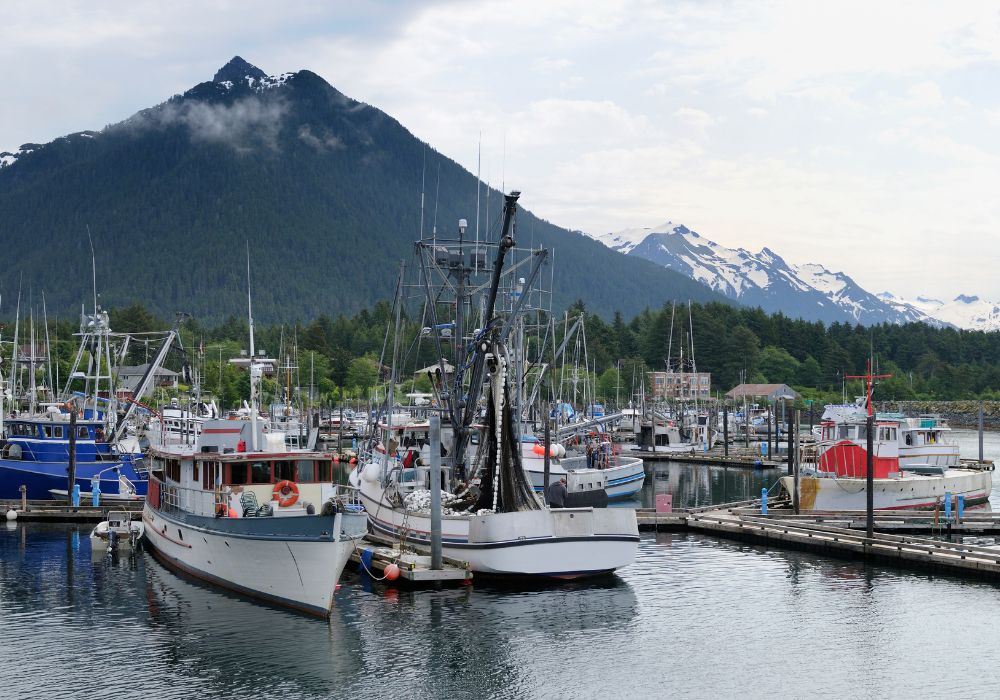Fishing in Alaska: What’s Changing for Commercial Vessels This Season
Kirk and Dylan made it up to Alaska, where the seas aren’t just for braving brutal weather—it’s where commercial fishing vessels are at the front lines of change. From regulatory shifts to environmental challenges, there’s a lot going on right now that every skipper, crew member, and tender needs to know. Here’s what Sea Mountain is watching, and why it affects all of us.
Big Moves in Regulation & Costs
1. Vessel Insurance & Regulation Ease Up
The State of Alaska recently passed House Bill 116, which removes some of the regulatory burdens on commercial fishing cooperatives when it comes to insurance. The idea: help vessels manage liability, machinery damage, and other risk without drowning in red tape—very welcome considering how high rates and restrictive policies have become.
Likewise, another law (HB 31) reduces registration requirements: Coast Guard-documented commercial fishing vessels no longer need to also register with the Alaska DMV every three years. That’s fewer fees, less overlap, less hassle.
2. New Harvesting & Observer Rules in the Bering Sea / Gulf of Alaska
Regulations for groundfish are being updated. For example:
- There’s more flexibility now for electronic monitoring (EM) in some observer categories. That matters if you’re a tender or catcher vessel delivering to shoreside or floating processors.
- Groundfish quota and season start dates are shifting. The rockfish program in the Gulf of Alaska has had its catcher-vessel coop quota caps changed and harvesting caps revised.
3. Environmental Enforcement Isn’t Slowing Down
On the flip side, enforcement is stepping up. A recent court ruling fined several Kodiak-based fishing companies and their manager over $1.18 million for repeated bilge water/oil discharges in the Gulf of Alaska and Bering Sea, violating the Clean Water Act.
It’s a reminder: cutting corners on environmental compliance isn’t just risky for reputation—it can hit wallets hard.
Why All of This Matters to Vessel Ops
If you’re running or working on a commercial vessel, these changes aren’t just headlines—they affect daily life onboard. Here’s how:
- Risk Management & Cash Flow: Lower insurance regulation or redundant registration costs free up money. That can go to maintenance, crew, safety gear—or simply help you stay afloat when the seas (both literal and regulatory) get rough.
- Compliance Demand is Rising: New monitoring, quotas, caps, and environmental rules mean you have to be ready. Witnessing stricter enforcement means vessels with poor environmental practices or lax safety routines are more exposed.
- Operational Flexibility: Season shifts, monitoring options, relaxed registration—all give you more room to plan. Whether you’re deciding when to send tenders out or how to manage your crew’s work/rest cycles, predictability and fewer administrative hurdles help.
- Sustainability & Reputation Don’t Take a Holiday: Buyers, processors, even fishermen themselves are more aware of environmental impact. A fine for bilge dumping, for example, doesn’t just cost cash—it can affect permits, future contracts, and community relationships.
What Sea Mountain Recommends
Based on what Kirk and Dylan have seen, here are suggestions to stay ahead:
- Review your insurance policies now: see if you can benefit from the new cooperative exemptions.
- Make sure your vessels are up to environmental standards—bilge systems, fuel/oil handling, waste treatment. It’s not just legal, it’s essential.
- If you’re in part of the groundfish / rockfish fishing fleets, follow the observer program changes and quota adjustments closely. Even small shifts in start dates or quota caps can affect profitability.
- Stay plugged in with policy developments. Local legislators, fisheries boards, NOAA, or state fish & game agencies: stay in the loop. Changes tend to stack fast.
- Prioritize crew safety training, especially with the riskier weather and compliance requirements—better trained crews not only reduce accidents but also reduce liability.
Kirk, Dylan, and Sea Mountain believe this season won’t be business as usual—and in many ways, that’s good. Adaptation always favors the well prepared. We’ll be tracking how these laws and regulations are actually working onboard. Get in touch if you want us to share on gear changes, crew safety, or vessel compliance checklists.
